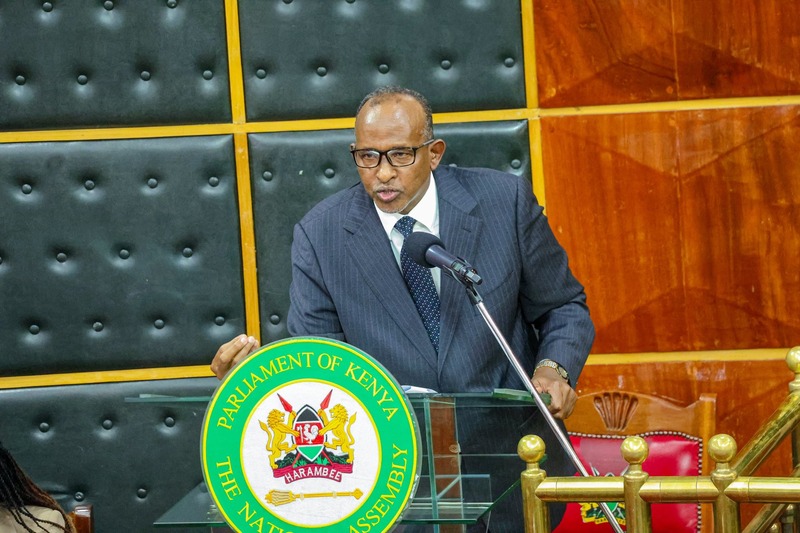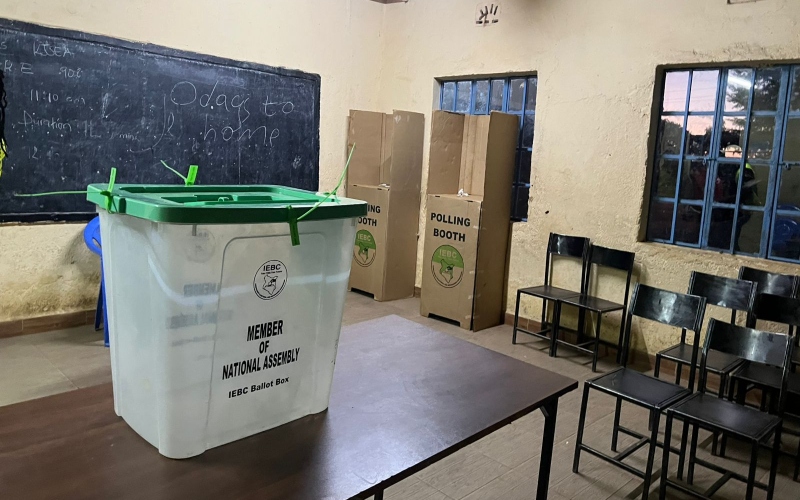Only 1.4 million informal workers enrolled in SHIF, says Health CS Duale

This number is in sharp contrast to the formal sector, where 4.9 million individuals are actively making contributions.
Health Cabinet Secretary Aden Duale has revealed that just 1.4 million Kenyans from the informal sector have enrolled in the Social Health Insurance Fund (SHIF), highlighting a growing concern over its sustainability.
This number is in sharp contrast to the formal sector, where 4.9 million individuals are actively making contributions.
More To Read
- TSC sued over teachers’ migration from MINET insurance to SHA
- Ruto announces increase in cancer treatment cover to Sh800,000 under SHA from December 1, 2025
- Government to review SHA packages amid calls for better cancer care
- Senate probes detention of new mothers in hospitals over unpaid bills
- Ruto targets faster healthcare access with KEMSA direct medicine deliveries to hospitals
- Parliament flags exclusion of teen mothers, prisoners from SHA coverage
Duale disclosed while addressing questions from Members of Parliament, noting that SHIF currently has a total of 5.6 million contributors.
He explained that these contributors can access free primary healthcare, in addition to inpatient services at Level 4 to Level 6 public health facilities.
On registration under the Primary Health Care (PHC) scheme, Duale said three million Kenyans are currently covered, giving them access to free services at Level 2 to Level 4 health facilities. This also includes contracted private and faith-based institutions. The daily average for new registrations stands at Sh45,000, according to figures presented to Parliament.
As of April 15, a total of 4,386,921 people had completed the registration process, with daily contributors averaging 20,000. The average contribution per member is currently Sh590.
“These members do not carry the burden of the 21,304,688 registered members, as PHC services are paid by the government and not the member contributions. Therefore, the Fund is sustainable and can pay for all the gazetted benefits,” Duale told the MPs.
He further said that under PHC payments, government-run health facilities have so far received Sh2.1 billion. Faith-based institutions have been paid Sh423.8 million, while private facilities have collected Sh4.2 billion from SHIF for services rendered.
“Payment to SHIF grants Kenyans additional benefits (mostly inpatient services) under SHA. These benefits kick in immediately, unlike NHIF, where there was a waiting period of up to 6 months after payment,” he added.
Despite these developments, health sector stakeholders are warning that the fund may face serious difficulties if the low rate of contribution from informal workers is not addressed. Less than a month ago, a group of hospitals warned Parliament that SHIF could collapse within a year if current issues are not resolved.
The Kenya Healthcare Federation (KHF), Rural Urban Private Hospital Association (Rupha), Kenya Association of Private Hospitals (KAPH), and faith-based institutions raised concerns that the outpatient care fund, which supports the vast majority of Kenyans, is underfunded and unsustainable in its current form.
They also noted that informal sector contributors often wait until they fall ill before making payments, which creates a gap in consistent funding.
“If we do not address how non-salaried people should make their contributions because they only pay when they fall sick, this SHIF will become very untenable,” said KHF chairman Kanyenje Gakombe.
Meanwhile, Duale also disclosed that nearly three million Kenyans previously registered under the defunct National Hospital Insurance Fund (NHIF) were found to have fake or inaccurate records, including biometric details.
He said that the government is focused on ensuring all citizens are properly registered under SHIF to improve data accuracy and the credibility of the health system.
Top Stories Today












































